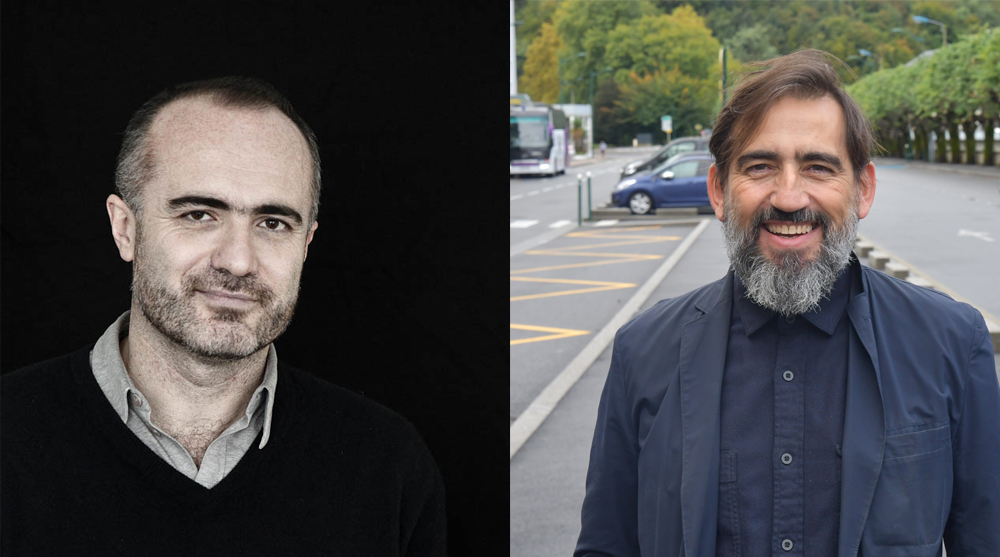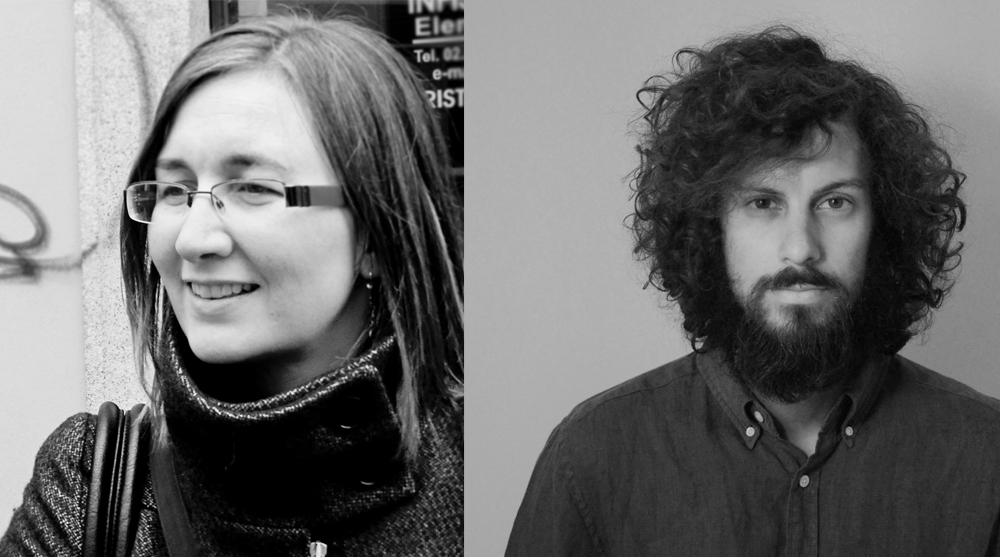We’d like to take the opportunity to introduce you to the winners of the 2nd prize of our “London Affordable Housing Challenge” competition - Massimo Bricocoli, Gennaro Postiglione, Stefania Sabatinelli, Nicola Sirugo from Italy!

Massimo Bricocoli and Gennaro Postiglione from Italy

Stefania Sabatinelli and Nicola Sirugo from Italy
The research group Constellations, Spaces of Public Action, is based at the Department of Architecture and Urban Studies of Politecnico di Milano. It is a multidisciplinary group of scholars and it brings together competences in diverse fields: Interiors, Urban Policy and Planning, Ethno- photography and Social Policy. Research and action investigate trends in housing and dwelling practices and the need for new kinds of housing, policies and projects in the face of social and urban change. These issues have been intensively explored also in teaching programs at the School of Architecture, Urban Design, Construction and Engineering as part of design-based studios involving a large number of international students in Architecture and Urban Planning. The theme of the research is focused on new residential solutions and/or the transformation of the existing building stock in response to the profound socio-economic-demographic changes (transformation of the family structures and labour market forms, migration flows, aging of the population, etc.), the criticalities they trigger (unaffordability of dwelling costs, temporary and/or multi-local housing needs, inadequacy of spatial solutions, lack of supported solutions for people in need, huge energy expenditure) and the changing practices they favour (like for instance shared housing solutions).
Brief information about the projects that you/your company have been involved with. For instance what scale have you focused on/preferred, any significant projects where company/ individuals have been involved?
The latest research projects and consultancy work undertaken by Constellations team are: WeMi, Innovative Welfare spaces for the Municipality of Milan (2015-17); Una casa all’Ortica, a project for Effatà House for older homeless people in Milan (2017-18); External advisors for the Lombardia Region Housing Department (2016 – ongoing); Review and feedback on the Temporary Social Residence programme launched in 2015 by the Municipality of Milan.
The works have different scales of interest since we understand architecture and urban design as socio-spatial agency. The focal point of any activity, concerning either design or policies, is always the inhabitant, the citizen. It is from the observation and the recording of on-going practices that every proposal finds its origin and development. We start as Urban Ethnographers to end up as Urban Policy designers and/or Interior Architects: cutting through all architectural scales.
What does architecture mean to you and what is the role of an architect in your society?
The teaching activities, research projects and consulting activities we have been jointly carrying out have confirmed to us that architecture has a strong intertwining with other disciplines and policy fields. Addressing changing housing needs and dwelling practices requires working at the edge of architecture, urban policy and social policy design. The specific interiors skills are crucial for the rethinking of housing solutions and welfare spaces, searching for a coherence between policy objectives and approaches and spatial configurations and features.
Why do you participate in architecture vision competitions?
Vision competitions are an important element to test research ideas and thoughts and even to develop research by design activity in a more protected environment: when doing exploratory research to be realistic is much more relevant than to be real. And vision competitions have exactly this kind of connotation. Moreover, it is also very important to confront what you are doing in your practice and research with what many other peers are doing.
What advice would you give to individuals who struggle to decide whether it would be beneficial for them to participate in architecture vision competitions?
We would say that challenging vision competitions is a very simple and affordable way to learn from yourself and from the others.
Top 3 Reasons Why You Should Enter Architecture Competitions
Curious about the value of architecture competitions? Discover the transformative power they can have on your career - from igniting creativity and turning designs into reality, to gaining international recognition.
Learn more


























